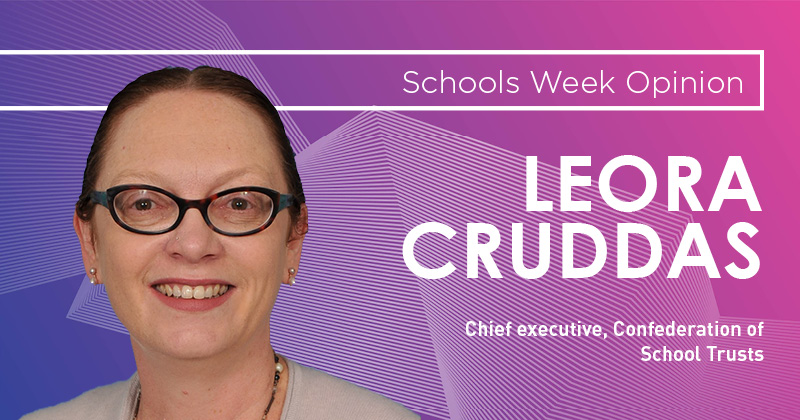This school year will be remembered as a challenging one for many teachers and school leaders owing to the challenges presented by the devastating situation in Israel and Palestine.
Muslim and Jewish young people in the UK are witnessing the suffering of their communities at home and abroad. For some, this includes attacks against their own family and friends, which has a profound impact on their sense of identity. This was particularly pronounced after the terrible events of 7 October and its dreadful aftermath.
My abiding memories of the classrooms I have visited are of the compassion pupils have exhibited. But this is in spite of the fact that they are feeling angry, upset, fearful, silenced and, at times, vilified.
Nationally, schools are deeply concerned about young people’s mental health and wellbeing. In responding to this, we can not underestimate the trauma caused by a constant stream of violent images from the region.
Meanwhile, the long tail of this conflict has also been extraordinarily challenging for teachers who have had to walk a tightrope between freedom of expression and the avoidance of hate speech. Given the nuances and the evolving situation, this has been no mean feat. We are particularly proud of how our Olive Branch Schools across the country have achieved this.
Schools are legally obliged to be impartial on political issues. This allows young people the space to make up their own minds on such issues, rather than telling them what to think.
To support this, Solutions Not Sides facilitates classroom discussions about this sensitive topic. We offer pupils an opportunity to speak to an Israeli and a Palestinian to better understand their perspectives on what is happening in the Middle East. They are peace builders who model respectful disagreement, conflict resolution and how to engage in win-win activism.
Our approach is one of empathy, active listening and humanising encounters, and our goal is simple: to support dialogue, promote conflict resolution and challenge prejudice.
So we have been appalled at the efforts of some organisations with political agendas to undermine teachers’ efforts to create safe and brave spaces for learning and discussion on this delicate topic.
Learning how to disagree well is key
We have witnessed attempts to close down conversations and silence teachers and pupils who are looking to promote peace and reconciliation.
Recently, an event in east London was brought to our attention which focused on ‘How to talk about Palestine in schools’. Recordings from the event featured appalling antisemitic language, Holocaust minimisation and distortion.
We have also heard terrible Islamophobia and anti-Palestinian racism this year from groups seeking to sow division in our communities.
Where schools are not tackling the issue, they leave a void for others to fill. As Oasis founder, Steve Chalke wrote in these pages last November, we can’t afford to look away from this situation.
In facing up to it, we must model getting the balance right between ensuring freedom of speech and avoiding hate speech between Jews and Muslims, between Palestinians and Israelis.
The key to respectful disagreement is to build emotional resilience when encountering viewpoints that differ from our own, while having the robustness to tackle hate speech when it arises.
The most – and possibly the only – responsible framework to examine different perspectives on fractious political issues like this one is to be solutions-oriented and grounded in the values of peace, justice and equality.
Disagreements are often difficult to deal with, but learning how to disagree well is key to building effective citizenship and community cohesion.
Next year looks set to be just as challenging as the one that has just ended. Worn down by exposure to the violence, young people need to be empowered with the skills, knowledge and emotional resilience to navigate the polarisation, division, hatred and prejudice to begin to build bridges.
Schools don’t have to fight this alone – but fight it they must.











